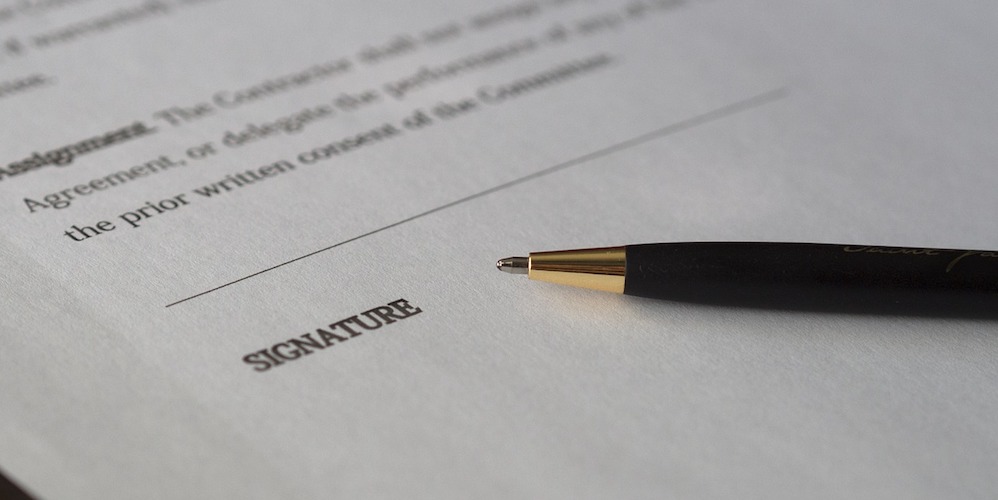
STEP ELEVEN: PREPARING TO CLOSE
07/25/2017
STEP TEN: THE CONTRACT
07/26/2017 STEP EIGHT: PUTTING IN AN OFFER FOR A HOME
STEP EIGHT: PUTTING IN AN OFFER FOR A HOME
The offer is the first step in negotiating the purchase of your new home. Try to consider all of the relevant facts when determining your offer price. Homes often sell for negotiated figures that are below the asking price – sometimes considerably below, so give serious consideration to your initial offer.
- Consider Market Conditions
Home pricing and sales activity are strongly affected by the strength of the underlying market. In a weak market, purchasers may be able to negotiate substantial reductions from asking prices. Conversely, it is risky to make a low offer in a strong market – another buyer may appear suddenly and pay full price. - Review the Specifics of the Property
Does the home suffer from a lack of curb appeal or other problems? If so, you may want to be more aggressive in your negotiations – chances are there will be less competition, even in a strong market. If the house needs renovation or repairs make sure you know exactly what to expect so you don’t have any unanticipated expenses after closing. - How Badly Do You Want the House?
Will you (or your family) be extremely disappointed if you lose the house? If so, consider being less aggressive in your negotiations — especially in a strong market. Conversely, if you are willing to take a chance you may be able to get a better deal. - Evaluate the Seller’s Motivation
A homeowner who is under pressure to make a sale is more likely to accept a low offer. Recognizing a motivated seller is a major step toward making an advantageous purchase. Common causes of pressure on a seller include financial difficulties, divorce, or the need to move by a certain date. - Consult with Your Agent
Your realtor is an experienced professional with deep knowledge of the local market, so make the most of this resource. Your agent can tell you how long a home has been on the market and can provide comparable sales for review. Then review additional information such as the condition of the home, improvements made to the property, current market conditions, and the circumstances of the seller. This will help you settle on a price you think would be fair to pay for the home. - Are You Buying a New Home?
Many builders have a general policy of not negotiating prices (particularly in major developments), so if you are buying a new house you may have to pay full price. Nevertheless, you may be able to get a deal occasionally – particularly if the market is weak or sales in the project are slow. - Writing the Offer
An offer can be in the form of either a letter or an actual purchase contract (the preferred format when working with an agent). Whichever format you choose, make sure that you clearly specify all of the required information and terms in the offer. If you are pre-qualified for a mortgage, offer to provide a copy of your approval letter to strengthen your hand. - Offer Checklist
Whether your offer is in the form of a contract or a letter, it’s important to make sure it includes all of the required information.- Buyer name and contact information
The offer should include the full name of all proposed buyers as well as contact information (address, phone number, etc.). - Seller and property information
The offer should include the seller’s name(s) and the address of the property to be purchased. - Purchase price and terms
The offer should clearly state the purchase price being offered for the property as well as any terms that are required. - Deposit information
The offer should include a complete breakdown of any deposits as well as a description of how they will be handled prior to closing. Typically, a small deposit is made with the offer (or shortly thereafter), with the balance of 10% of the purchase price due in 7-14 days. All deposits should be held by an attorney or escrow agent and should be refundable unless the buyer defaults on the contract. - Closing date
The offer should specify the proposed closing date. Of course, the date is approximate at this stage. - All contingencies
All contingencies should be clearly specified in the offer. Typically, a home purchase is subject to the buyer obtaining a mortgage and conducting a series of inspections. The offer should specify time limits to satisfy each contingency. - Contracts and attorney review
If the offer is not in the form of a contract the letter should clearly state that it is subject to a satisfactory contract being drawn. If the offer is a contract it should provide for an attorney review period of at least three business days during which either party may cancel.
- Buyer name and contact information
- Counter-Offer and Negotiation
Instead of accepting your initial offer the seller will probably respond with a counter-offer. After reviewing the counter-offer you are essentially back to the beginning of the offer process – but with a better idea of the seller’s negotiability. Consider all of the information and decide if you are willing to increase your price. This offer and counter-offer phase of the negotiation is often done verbally – through the agents or even at a meeting of buyer and seller – with revised contracts signed after price and terms are accepted by both parties.





